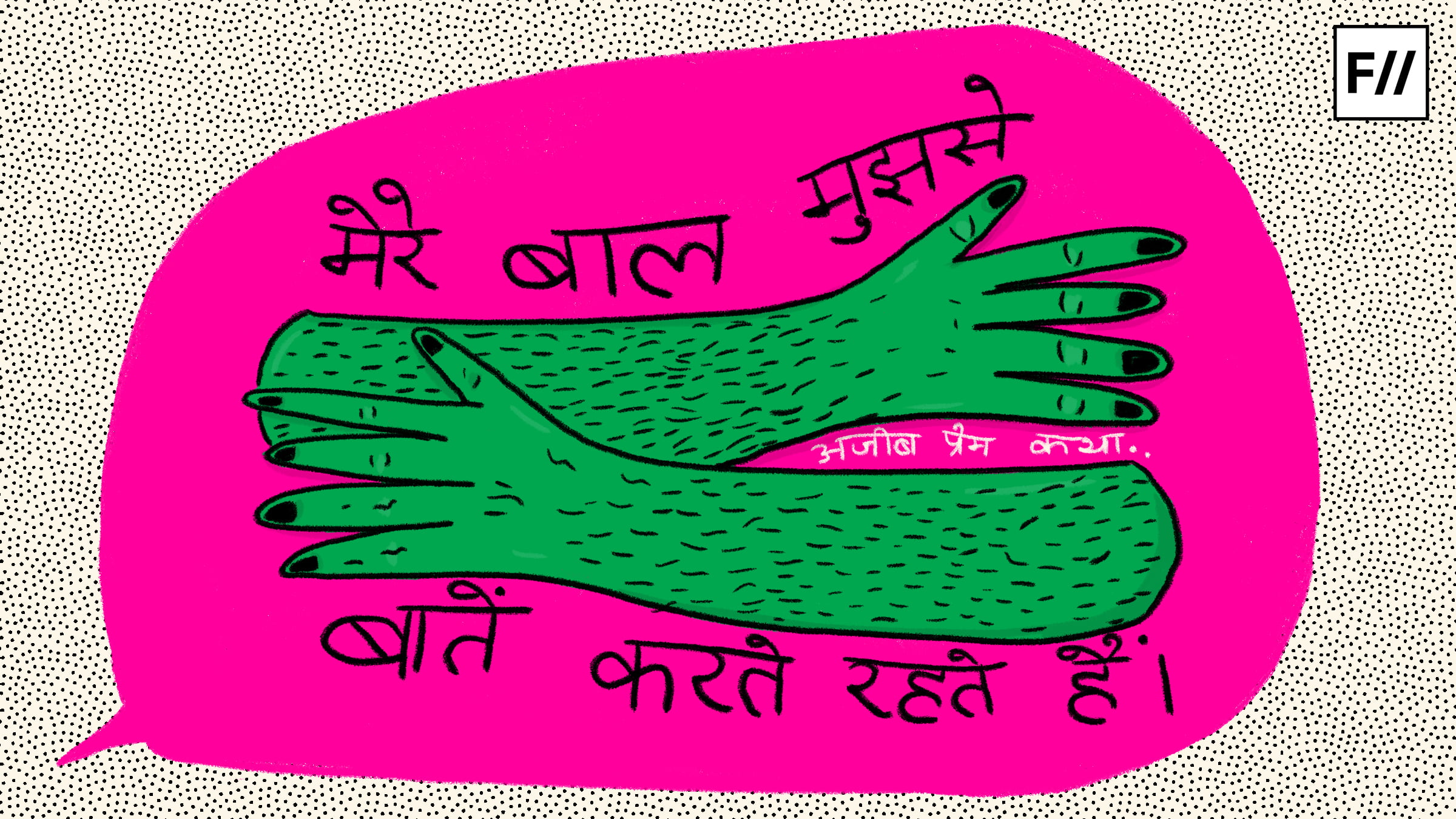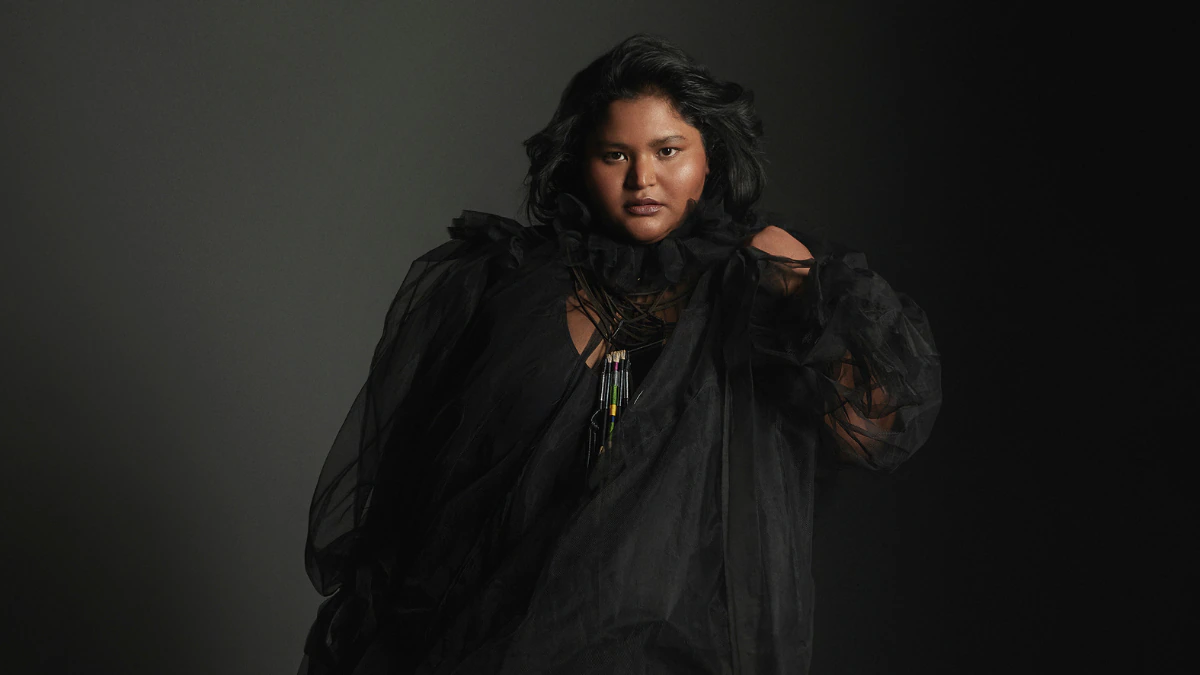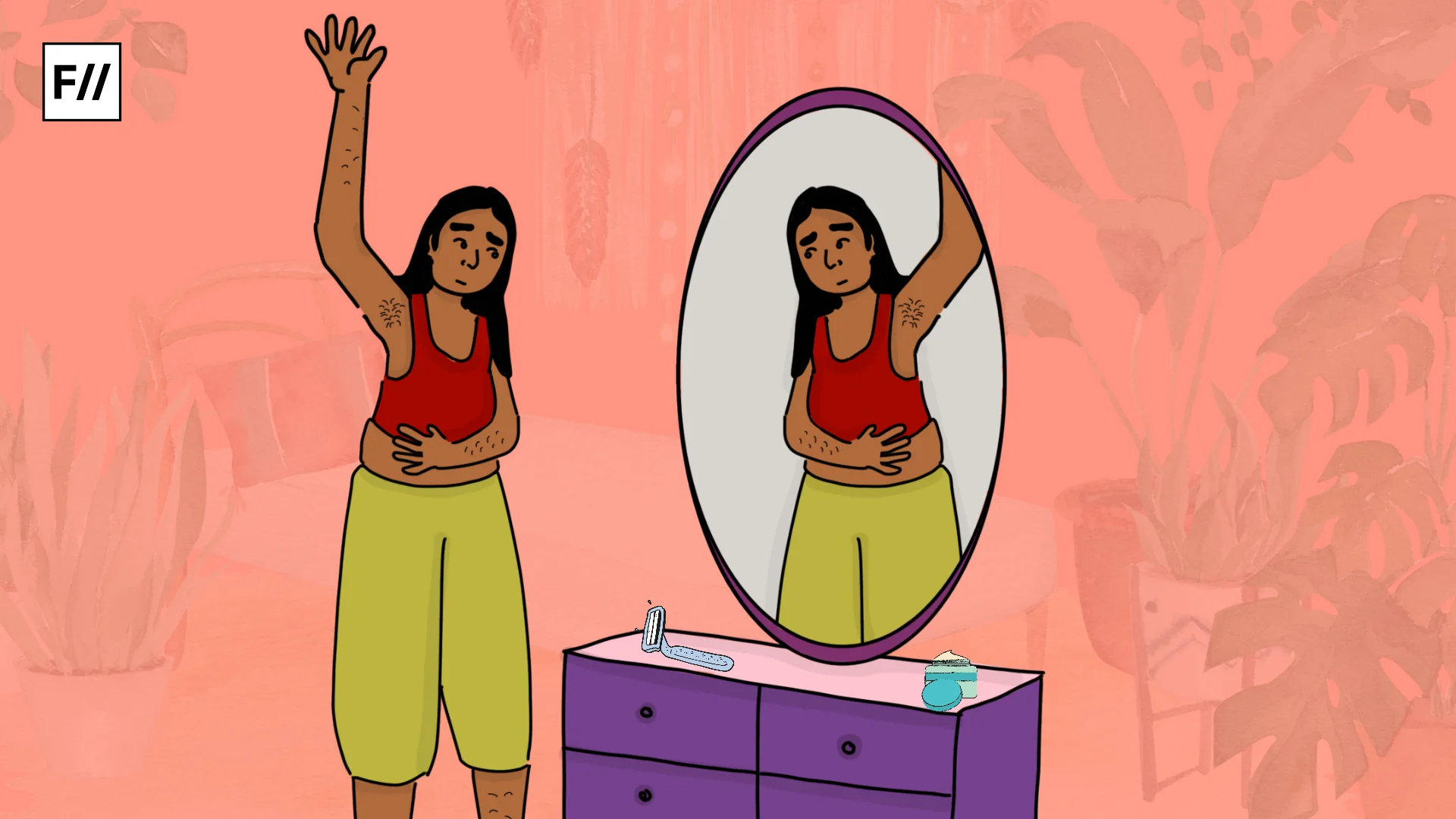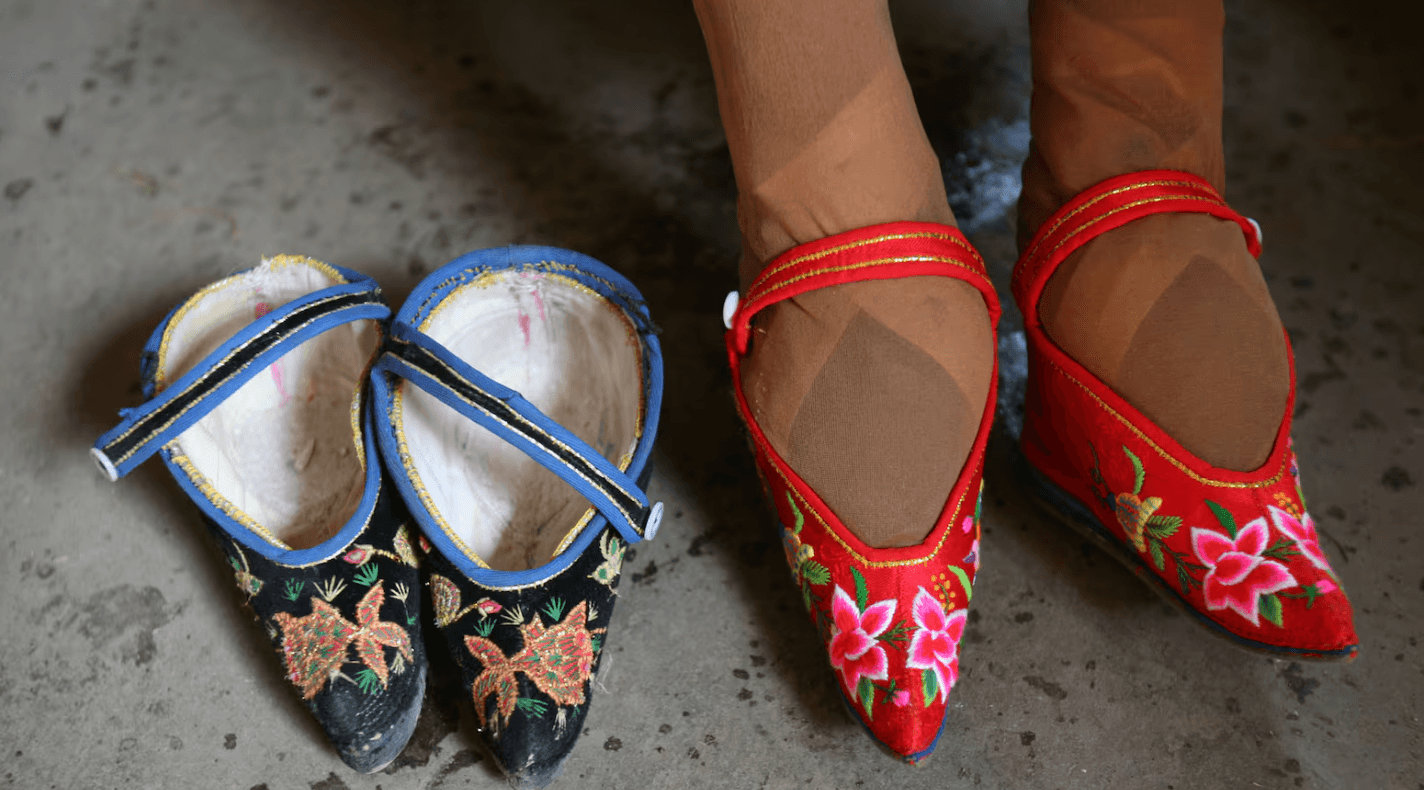‘Striding down the road in a sleeveless dress and her underarms aren’t even waxed? Oh my god! How can anybody be this filthy and let their hair grow just like that? How gross! High time you got them waxed, girl!’
Societal beauty standards are brutal. Perpetuated and reinforced through the media, they are almost always harmful for women. The stigma around body hair is one such beauty standard that has been extremely disadvantageous for women, who are expected to be hairless all the time.
‘Who wants this filth all over their body?’
This expectation leads to shaming and policing of women with body hair so much so that people are disgusted at the sight of hair on a woman’s body. It also results in women feeling uncomfortable wearing shorter sleeves if they have hair on their arms or underarms. Women end up shaming themselves for having body hair – going through the full body wax and other painful measures to free themselves of their hair. When it comes to facial hair, it has to go off! From the upper lip, to the eyebrows, to sideburns to the chin to the nose to the forehead.
People are disgusted at the sight of hair on a woman’s body.
However, men are free from this sort of policing when it comes to either bodily hair or facial hair since it is acceptable for them to have both. This only reinforces what we’ve been saying – that it is always women’s bodies that are the sites of society’s policing, whether in terms of body sizes, hair growth, or clothing choices.
Abasement associated with hair leads women to wax, shave, pluck, trim and zap, some of which are painful processes. Advertisements about hair removal creams are sexist, like when Veet, a hair removal cream referred to women who don’t remove hair as dudes. Other advertisements show hair removal to be a completely painless process whereas we all know that it is not.
Advertisements aim to cash on making people feel uncomfortable about their body hair and to exploit their vulnerabilities. They portray women achieving happiness and success after hair removal. Women are seen as more sexually appealing if they have removed hair – to the extent that mesmerised men are falling at their feet and feeling up their hairless skin. Hair removal cream ads show women removing hair from already hairless skin – body hair for women is such a taboo that not even the ‘before removal’ images show body hair!
One person defying and challenging these established norms of hair removal is Harnaam Kaur, who stopped fighting her beard caused due to Polycystic Ovary Syndrome and is now using the very media and fashion industry to change perceptions. The body positive advocate, model and Instagram celebrity claims that she still gets pressurised by the Asian community often to get rid of her hair.
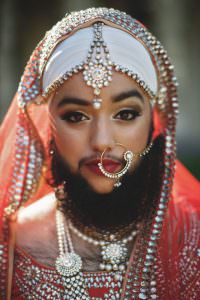
Harnaam Kaur in a Bridal PhotoShoot. Image Credit: RocknRoll Bride
I tweeted out to women in order to find about people’s experiences of body hair shaming and got plenty of responses that illustrated that regardless of gender, people participate in shaming. There were varying degrees of shaming that people had experienced ranging from unsettling looks to overt shaming and insults for having body hair.
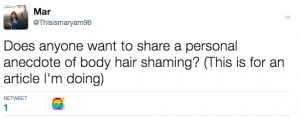
Sarita recalls, “On a kind-of date, a friend arranged for me to meet her friend, a guy. I wore a knee length dress with hairy legs. He complained to her – I don’t think I ever saw him again or he was interested in meeting me again.”
Hinam was also shamed for having facial hair. “A guy-friend of mine in 10th grade looked at me and said, “Why do you have a moustache?” I went home and waxed the shit out of my upper lip.”
One of the reasons many women comply with these beauty standards is the shaming they receive, especially from the opposite sex, if they choose not to conform. Cringing and disgust are common reactions by men at women who have hair on their bodies. They find it completely acceptable to have hair on their own bodies – however, when it comes to women, it is not.
However, body hair shaming is not limited to the opposite sex. Internalized misogyny begins with women policing other women for their bodies. In this example by Nidhi Jamwal, she recalls how one woman was attacked by other women merely for choosing not to wax. “Last June, I was having breakfast with a couple of female journalists from South Asia who had met at Nepal. One journalist from a neighbouring country hadn’t waxed her arms or legs. She never felt the need to do so. Another journalist ridiculed this woman and made fun of her, calling her ugly. The journalist under attack couldn’t even finish her food.”
Judgement and attacks are common reactions to people who do not prefer removing their bodily or facial hair. Even people who otherwise may seem to know better resort to such shaming and ignorance.
Salma* recalled her childhood experiences which led to her developing a low self esteem. “I grew up as quite a hairy child with a considerable amount of facial hair. I had a unibrow and a moustache and I still remember the amount of comments I got about my unibrow. Not just from family members, but even from friends sometimes.
I remember being called a gorilla because of my hairy eyebrows and a boy because of my moustache. All these comments made me feel quite bad about myself and I remember grabbing a scissor and trying to trim my unibrow myself, more than once (which was a bad idea because then I just looked really funny).”
People constantly provide unsolicited advice regarding the removal of body hair and about how their features will be far more attractive if they just got rid of body hair. Right from a young age, girls feel the pressure to be hairless. The only person who gains from this unsolicited advice is those who give it so they can pat themselves on their backs for their public service.
“I remember being called a gorilla because of my hairy eyebrows and a boy because of my moustache.”
It is unfair to scrutinize and pressurize women to the extent that it affects their self-esteem and mental health – all to conform to an arbitrarily constructed beauty standard. Different societies value different ideas of beauty. However, in the globalized age, a near-universal image of beauty has been constructed through the media featuring perfectly hairless bodies, which leads women to feeling embarrassed about body hair.
Whether or not a woman chooses to remove hair should be entirely her choice rather than society determining what is appropriate for them to do.
Please note that some names mentioned here have been changed in the interest of anonymity.
Featured Illustration: Shreya Tingal for Feminism In India
About the author(s)
Maryam is an aspiring sociologist who is keen on working on of gender, advocates an intersectional feminism and is hopeful of smashing the patriarchy.
